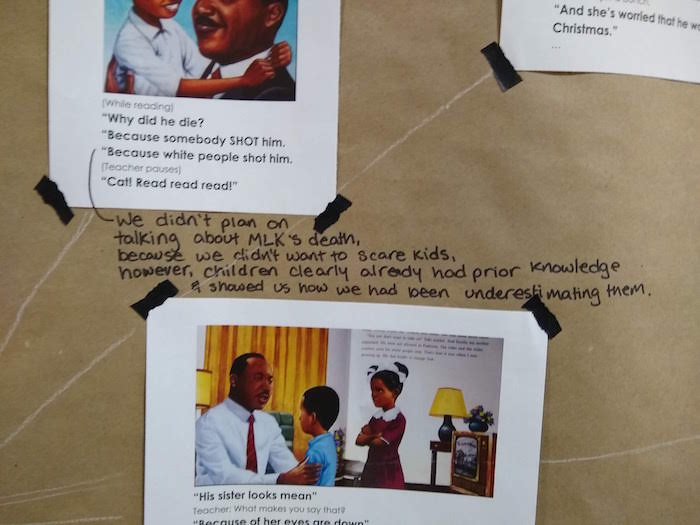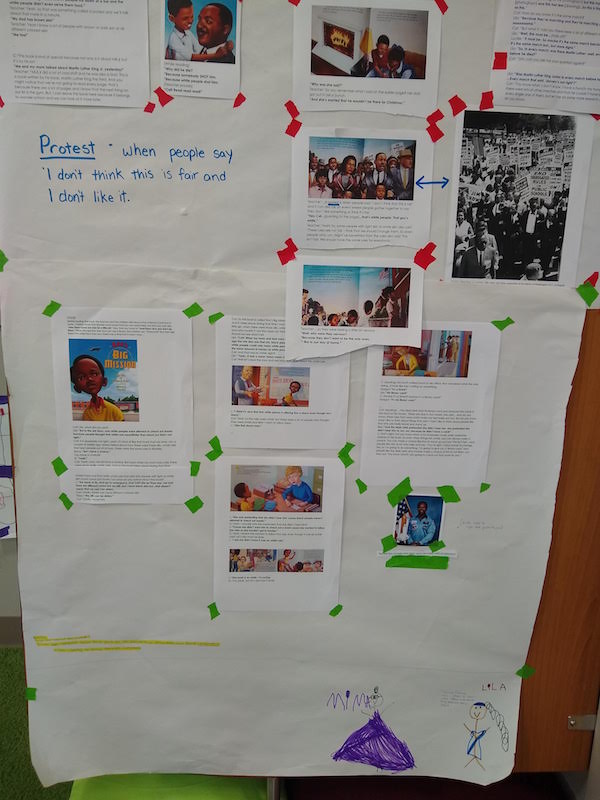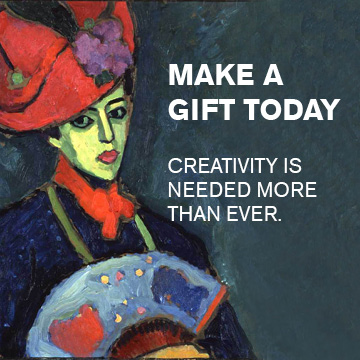
Notes from our conversation posted on the bulletin board outside the classroom at Wonder School, an arts-rich laboratory preschool launched in 2018 in collaboration with Columbus State Community College, Columbus Museum of Art, and The Childhood League Center. Wonder School fosters purposeful play, critical inquiry, and a collaborative community approach to education—for children, for their educators, for a more creative and compassionate society.
At Wonder School, and all of our early childhood programming at the Columbus Museum of Art, anti-racist teaching is at the heart of what we do. While we in no way consider ourselves “experts,” we do feel comfortable sharing some of the approaches we’ve used and continue to use. More importantly, as educators, we feel it is our responsibility to not remain silent.
The first thing we all need to acknowledge, if we haven’t already, is that there is never an age at which children are “too young” or “too innocent” to talk about racism. The world as it is is deeply unfair toward people with Black and brown skin. Research has shown that children are excellent observers from birth and concrete thinkers trying to make sense of the world. Studies show that by preschool, many children already hold racist stereotypes and show bias against children of other races. Unless we explicitly name the unjust system (racism), and call it out as unfair, we risk children growing up thinking that the way the world is is the way it should be.

Notes from the bulletin board outside the Wonder School classroom.
The second uncomfortable truth that we as parents and educators (especially those of us who are white/white passing) need to get comfortable with is that this is life-long work. As artist, author, researcher, and founder of Mosaic Education Network Dr. Melissa Crum says, in the same way we can’t visit the dentist once a year and never have to think about oral hygiene again, we cannot have just one conversation or read just one book and “cure” ourselves or our children of racism. Instead, just as we help our children brush their teeth every day, we need to make peace with the idea of having regular ongoing conversations about racism and other injustices with our children.
Over the next few weeks, we will be sharing a series of blog posts unpacking each of our main strategies behind anti-racist teaching with young children. In each we will share resources, including documentation from the classroom, picture books, artwork from the collection and links to resources that have been invaluable in our own efforts. These strategies include:
- Self-reflection and self-education
- Explicitly naming race and talking about difference in a joyful way
- Talking in a developmentally appropriate way about injustices- both from the past and present
- Being intentional in choosing picture books that both feature Black, Indigenous, People of Color (BIPOC) characters AND that are by BIPOC authors/artists
- Supporting and fostering imagination, as a powerful tool for radical social change
In the coming weeks watch for more resources for talking to young kids about racism.
– Caitlyn Lynch is CMA Lead Teaching Artist & Coordinator for Young Child Programming including Wonder School, an arts-rich laboratory preschool launched in 2018 in collaboration with Columbus State Community College, Columbus Museum of Art, and The Childhood League Center. Wonder School fosters purposeful play, critical inquiry, and a collaborative community approach to education—for children, for their educators, for a more creative and compassionate society.
